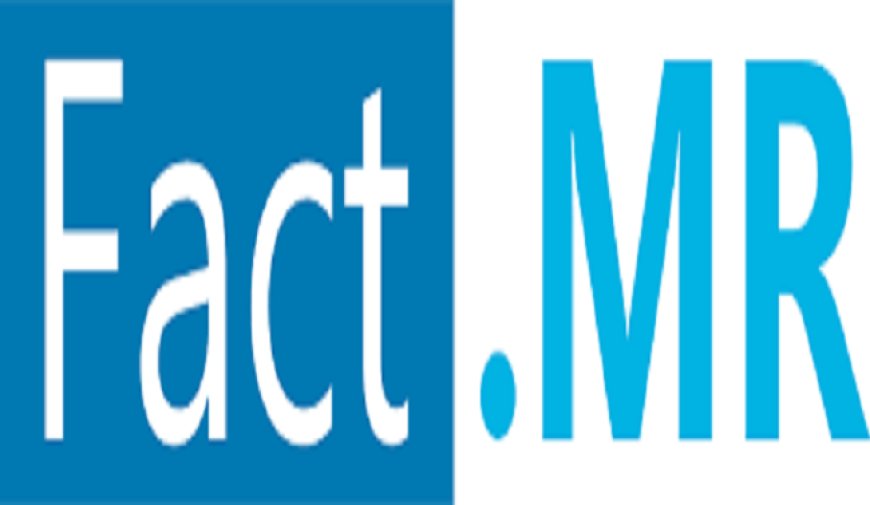Chillers Become Essential for HVAC Systems in Hotels, Hospitals, and Sports Arenas
Global sales of chillers are forecasted to grow at a CAGR of 2.8% from 2022 to 2032. The global chillers market, valued at US$ 4.2 billion in 2022, is projected to reach US$ 5.5 billion by 2032.

The chillers market is an essential component of various industries that require temperature control and cooling solutions. Chillers are used to remove heat from liquids or air, providing a cooling effect to support operations in industries like HVAC, food and beverage, pharmaceuticals, chemicals, and manufacturing. The global market for chillers has grown steadily, driven by the increasing need for energy-efficient solutions in both industrial and commercial applications. As urbanization and industrialization continue to expand, the demand for cooling systems that offer precise temperature regulation and reduced energy consumption has risen. Additionally, environmental concerns regarding energy use and the impact of cooling systems on climate change have contributed to the growth of the market, pushing manufacturers to adopt more sustainable practices and refrigerants.
Global sales of chillers are forecasted to grow at a CAGR of 2.8% from 2022 to 2032. The global chillers market, valued at US$ 4.2 billion in 2022, is projected to reach US$ 5.5 billion by 2032.
Want Full Report? Enquire Here-https://www.factmr.com/report/554/chillers-market
Market Insights
Chillers are available in a wide range of types, such as air-cooled, water-cooled, and evaporative, each offering different benefits depending on the application. The market for chillers is seeing a shift toward more energy-efficient and eco-friendly systems, as businesses look to reduce their carbon footprints and improve cost efficiency. Advances in technology, such as the use of variable speed drives and intelligent control systems, are making chillers more efficient and capable of providing better performance with reduced energy consumption. These technologies enable chillers to adjust their operation based on real-time demands, further improving energy savings. The introduction of environmentally friendly refrigerants, such as R-32 and ammonia, is also a major trend in the market, as they help minimize the environmental impact of traditional refrigerants.
Market Outlook
The future outlook for the chillers market is optimistic, with continued growth expected in both developed and developing regions. The rising adoption of air-conditioning systems, especially in emerging economies, is anticipated to drive the demand for chillers in the residential, commercial, and industrial sectors. The trend toward smart and connected cooling systems will also propel the market forward, as consumers and businesses demand more efficient and user-friendly systems. Additionally, with industries focusing more on reducing operational costs and adhering to sustainability standards, the chillers market will continue to evolve, offering solutions that optimize energy consumption and improve overall system efficiency. As global regulations become more stringent regarding the use of harmful refrigerants, the demand for chillers that use low-GWP (Global Warming Potential) refrigerants will increase.
List of Key Companies Profiled in The Report
- Daikin Industries
- Johnson Controls
- Trane Inc.
- Carrier Corporation
- Thermax Limited
- GEA Group
- Broad Group
- Others
Recent Industry News
Recent developments in the chillers market include a rise in innovations aimed at improving energy efficiency and sustainability. One major trend is the growing adoption of eco-friendly refrigerants, as businesses and governments worldwide push for greener cooling solutions. Many manufacturers are transitioning away from traditional refrigerants, like R-22, toward more environmentally friendly options, such as R-32 and R-134a. In addition, manufacturers are increasingly investing in technologies such as variable refrigerant flow (VRF) systems, which allow for precise control of temperature and enhanced energy savings.
Industry collaborations have also been a significant theme in recent news, with several key players partnering to develop next-generation chiller systems. These collaborations focus on combining technological advancements, such as IoT integration, smart sensors, and automation, to create more intelligent and efficient cooling solutions. Additionally, there has been a surge in the adoption of chillers in the data center sector, where cooling plays a vital role in maintaining the efficiency and reliability of high-performance computing infrastructure.
Notable Developments
Notable developments in the chillers market include the increasing investment in energy-efficient and sustainable technologies. The development of magnetocaloric refrigeration, a technology that uses magnetic fields to produce cooling, has garnered attention due to its potential to eliminate the use of harmful refrigerants. Other advancements include the integration of advanced materials and coatings, which help to improve the heat exchange capabilities of chillers, thus making them more efficient.
Another key development is the focus on customization in chiller systems, allowing businesses to tailor cooling solutions to specific needs. This trend has been particularly noticeable in the food processing and pharmaceutical industries, where temperature control is crucial for product quality and safety. In the commercial sector, chillers are increasingly being integrated with building management systems to enable better control, monitoring, and maintenance.
Competitive Landscape
Chiller manufacturers are adhering to energy-efficiency standards set by regulatory bodies and focusing on expanding their production capacities to meet the growing demand. As chillers are widely used across various industries, technological advancements have spurred the development of IoT-enabled models.
For example, Pro Chiller Systems has introduced IoT-powered chillers, which allow users to visualize data through a custom dashboard. These smart chillers enhance monitoring and control across industrial applications, positioning them as a key innovation in the chiller industry.












